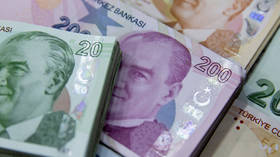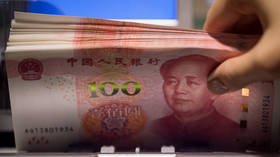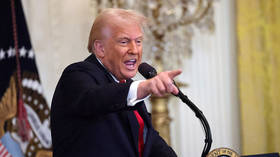Russia mulls $70 billion yuan-led currency purchase – Bloomberg

Russia is considering buying some $70 billion in yuan and other currencies of ‘friendly’ nations that have not placed sanctions on the country this year, Bloomberg reported on Thursday.
According to the report, the plan was passed at a meeting between top government officials and representatives of the Central Bank of Russia on August 30.
The move is reportedly aimed at slowing the strengthening of the ruble, which could pose problems for the Russian economy by reducing exporter’s profits. Russia is also reportedly eager to keep its exchange reserves in 'friendly' currencies instead of the euro and US dollar, after $300 billion of the country’s reserves were frozen by the West as part of Ukraine-related sanctions.
“The $300 billion frozen… has become a vulnerability and a symbol of missed opportunities,” the report prepared for the meeting said, as cited by the news outlet, which obtained a copy of the document reportedly verified by the participants at the meeting.
The document noted, however, that even buying currencies of ‘friendly’ countries may prove problematic, because it would require separate agreements, while the currencies of other nations are subject to either political or devaluation risks.
According to First Deputy Chairman of the Bank of Russia Dmitry Tulin, who spoke to business outlet RBK, it is “much safer to use currencies of countries that do not support sanctions against Russia” even though there is a small risk they may decide to join the sanctions later. However, long-term savings in alternative currencies may be tricky and may require an individual approach depending on the country, as various currencies “differ greatly from each other in terms of liquidity, exchange rate volatility and the possibility of using them in commodity and financial markets.”
An anonymous source in the Russian government told Interfax news agency, however, that Bloomberg’s report “does not reflect the reality.”
The Bank of Russia did not immediately respond to media requests for comment regarding the currencies plan.
For more stories on economy & finance visit RT's business section














